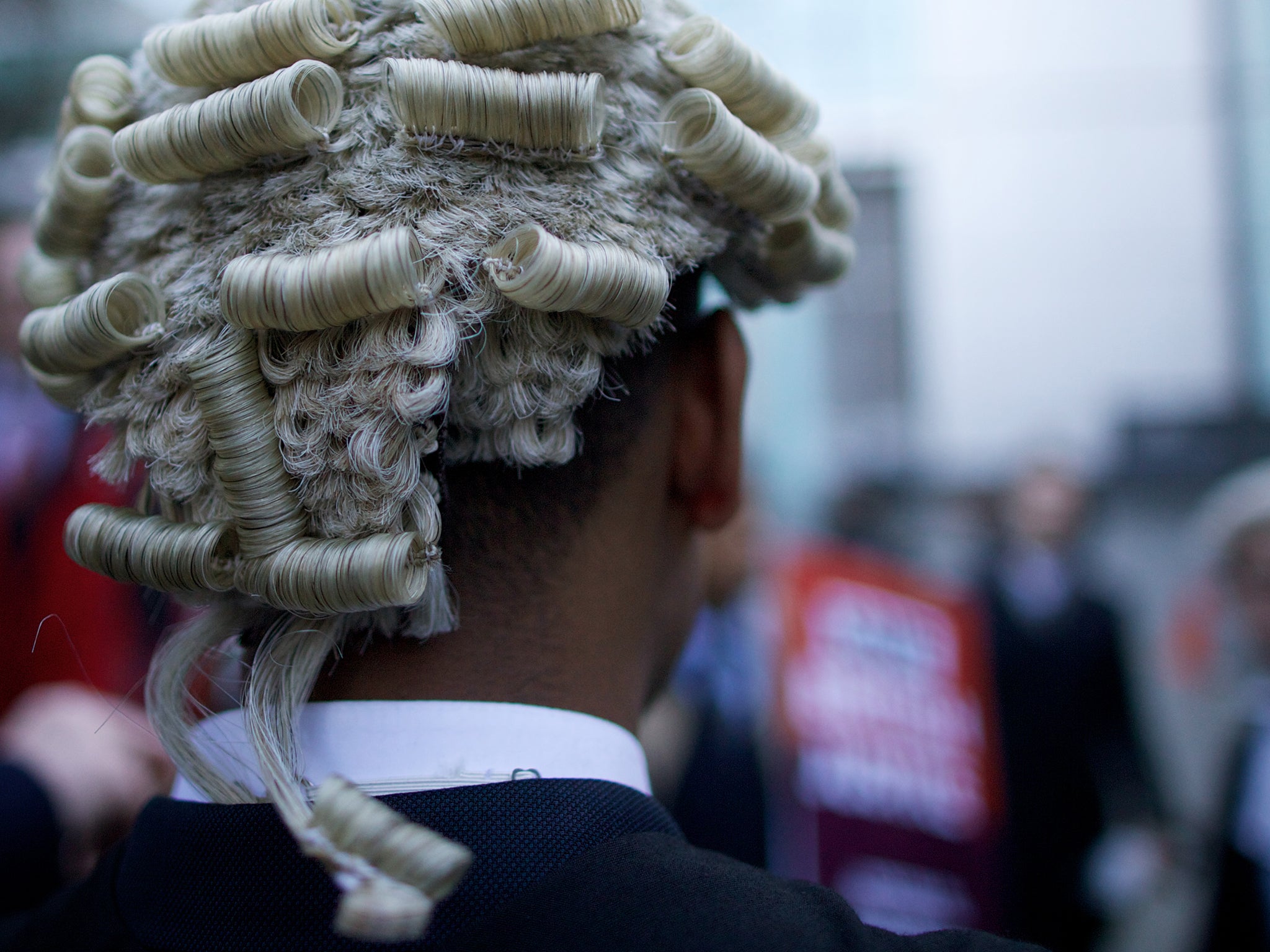Unfair court charges cost us all, not just the criminals
For some magistrates the injustices have proved too much to bear and 50 have resigned


Your support helps us to tell the story
From reproductive rights to climate change to Big Tech, The Independent is on the ground when the story is developing. Whether it's investigating the financials of Elon Musk's pro-Trump PAC or producing our latest documentary, 'The A Word', which shines a light on the American women fighting for reproductive rights, we know how important it is to parse out the facts from the messaging.
At such a critical moment in US history, we need reporters on the ground. Your donation allows us to keep sending journalists to speak to both sides of the story.
The Independent is trusted by Americans across the entire political spectrum. And unlike many other quality news outlets, we choose not to lock Americans out of our reporting and analysis with paywalls. We believe quality journalism should be available to everyone, paid for by those who can afford it.
Your support makes all the difference.There is nothing wrong with measures that increase the efficiency and effectiveness of our criminal courts – so long as they comply with basic principles of justice. That is why I have long argued in favour of early guilty plea schemes, which encourage those intending to plead guilty to do so at the earliest possible opportunity rather than at the last minute. Not only do they save the public considerable sums of money, they also speed up the criminal justice process (which is still too slow) and – perhaps most importantly of all – they reduce the anxiety and distress otherwise experienced by victims and witnesses who have to wait many months, and sometimes longer, for an outcome in their case.
Over the years, the Sentencing Council has carefully calibrated the reduction in sentence appropriate for an early guilty plea. The key word here is “reduction” because, in our criminal justice system, we have always recognised the principle that sentences should not be increased for those who maintain their innocence. That is a very basic and long-standing proposition.
But this April, weeks before the election, the Government rocked the boat when it introduced the criminal court charge. Described as a measure to make it possible to recover some of the court costs from offenders, it subjects all those who plead guilty, or are found guilty, to a mandatory charge. On the face of it, it is not obviously controversial. But – and it is a big but – there are two important defects in the policy.
The first is that the charge increases significantly if defendants maintain their innocence. So if defendants plead guilty to a mid-range offence in the magistrates court they pay a charge of £180. If they insist on a trial for the same offence and is later found guilty, the charge shoots up to £1,000.
When I challenged this in Parliament on the basis that it broke a golden rule of criminal justice – that those who maintain their innocence should not have their sentence increased – Shailesh Vara, the Justice minister, blandly asserted that “the charge is not part of the sentencing process”. That reply may be technically right, but it is wholly inadequate. Before paying the criminal court charge, an offender is already liable to pay compensation, the Victims Surcharge, a fine and a contribution to prosecution costs. These are all considered part of a sentence. The idea that the criminal court charge somehow sits alone, outside the basket of other consequences and incapable of influencing a defendant’s decision whether to maintain his or her innocence, requires a serious reality check. As the Judicial Executive Board put it in evidence to the Justice Select Committee, there is a “danger that the charges and other financial penalties may influence a guilty plea where defendants are concerned about high costs”.
The second defect is that, although the sentence imposed by the court (including fines and costs) has to be proportionate and related to the dependant’s means to pay, the criminal court charge does not. It is a mandatory inflexible penalty which the courts must impose without regard to the ability to pay. The examples of unjust results are becoming legendary: a 26-year-old homeless man who stole a can of Red Bull worth 99p was given a sentence of a conditional discharge but a fixed criminal court charge of £150.
For some magistrates, such injustices have proved too much to bear and 50 have resigned. Others, it appears, are coping with the impact of the charge in other ways. Contrary to guidelines, some courts are reducing fines or costs awarded to mitigate the injustice of the fixed charge. As the Sentencing Council rightly observes, in such circumstances “it is reasonable to infer that orders of compensation to victims may be similarly affected”.
To me that is Ministry of Justice: 1. Victims: 0. It’s time for an urgent rethink.
Keir Starmer, the Labour MP for Holborn and St Pancras, is the former Director of Public Prosecutions
Join our commenting forum
Join thought-provoking conversations, follow other Independent readers and see their replies
Comments